Repair cafés aim to tackle our 'throwaway society'
- Published
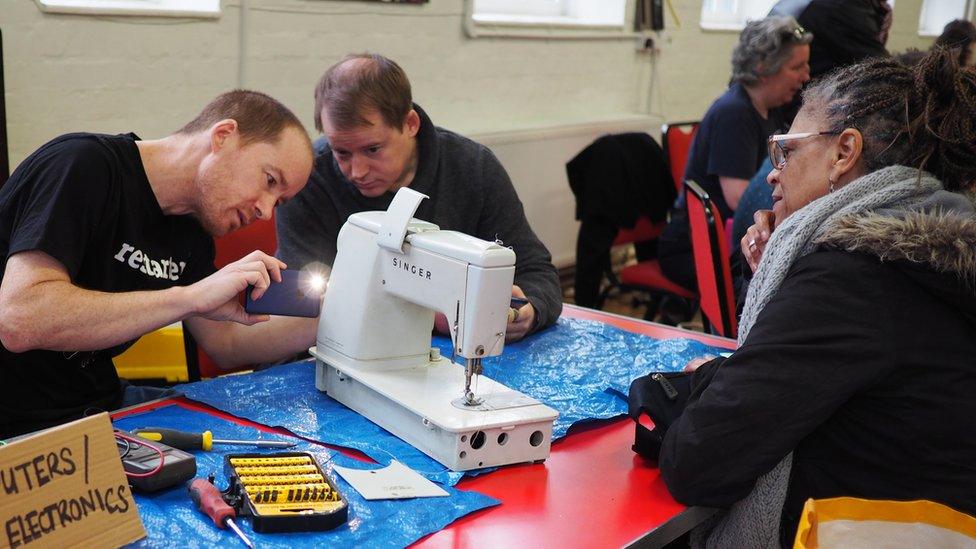
The Stretford Repair Café wants to reduce the number of broken electrical items sent to landfill
Two million tonnes of electrical equipment is thrown away each year in the UK, with much of it ending up in landfill sites. Now, a growing army of repairers is fighting back against our "throwaway society".
If you've got a broken toaster, a clapped-out kettle, or a laptop on its last legs, it can be tempting to just chuck it away and buy a new one.
This is where the team at Stretford Repair Café in Greater Manchester is offering to step in.
For the price of a brew, they will try to mend your faulty electrical equipment in just 15 minutes.
Their mantra is very simple: "Fix it before you throw it away."
The group running the café, Stitched Up, also teaches sewing workshops across Manchester.
Co-director Bryony Moore said the idea of a repair café was "just common sense".
"We're living in such a throwaway society - and that does bother a lot of us," she said.
"It's pretty easy with something like a phone but when it comes to a toaster or radio, there's nowhere really to get it fixed so you just buy a new one.
"The repair café is a good way of pushing back on that and saying: 'Actually, I don't want a new thing. I just want my device to keep working.'"
Stitched Up opened Manchester's first repair shop in Chorlton in 2016.
Though it closed down during the Covid pandemic, Stitched Up hopes to make up for lost time with its new venture in Stretford.
It opens its doors on the second Saturday of each month.
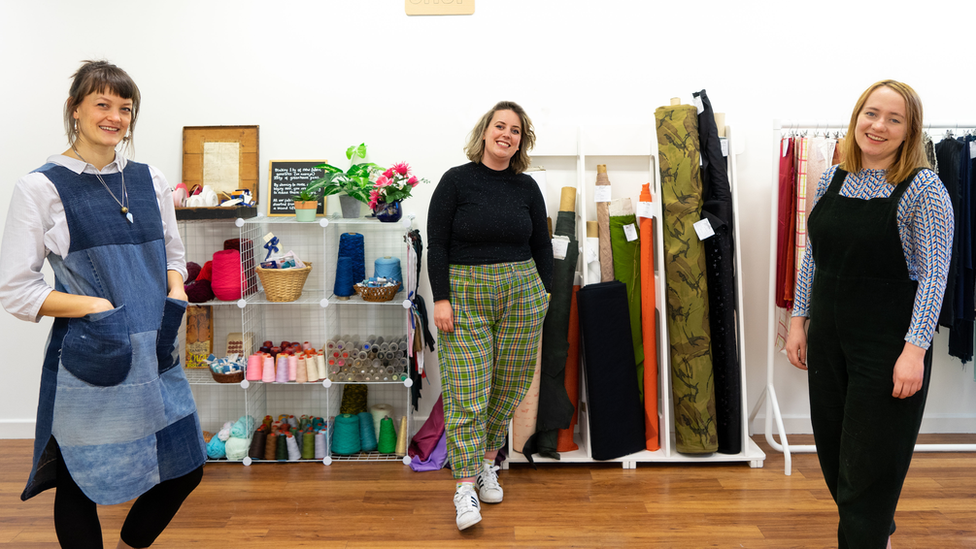
Bryony Moore, Sarah Revington, and Caitlin Aitken from Stitched Up
Customers are asked to bring along one item and are matched upon arrival with the best-qualified volunteer.
The tech gurus there come from a wide variety of backgrounds - some have practical skills from their jobs, while others just like mending things as a hobby.
Their youngest ever volunteer was a 15-year-old who helped fix computers.
"We don't need professionals," said Bryony. "If you can fix something, you can volunteer."
'Take, make, waste'
Rhiannon Hunt of Manchester Metropolitan University champions sustainability in engineering and science.
She said many electrical manufacturers were not encouraged to make their items last.
"The more they sell, the more profit they make," she said. "This means they're not incentivised to design durable things that are easy to repair - and consumers are encouraged to opt for new replacements.
"We must move away from this 'take, make, waste' attitude."
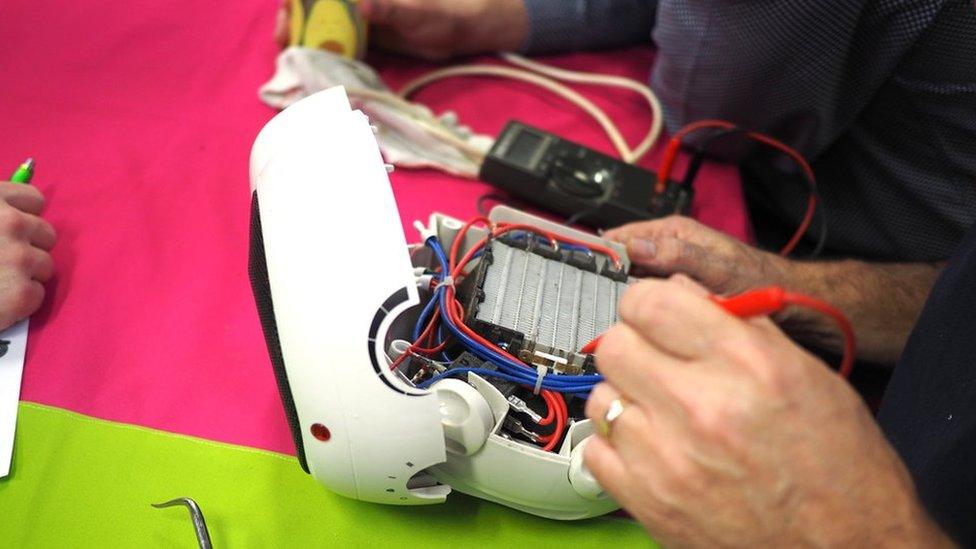
Manufacturers of some electrical appliances are legally required to make spare parts available
Recent legislation may reflect changing attitudes, however.
'Right to Repair' regulations, which came into force in July 2021, legally require some manufacturers to make spare parts available.
But do these regulations go far enough?
Parts for simple repairs, like the handle for a washing machine, are available to consumers, but components requiring difficult repairs are only available to professionals.
What's more, only large appliances such as washing machines, dishwashers and fridges are covered by the regulations.
Your clapped-out kettle? Forget it.
3D printing
Filling in the gaps where parts aren't available is the team at Manchester Metropolitan University's PrintCity.
They use 3D printers to construct replacement components, and share their expertise with repair cafés.
With PrintCity's help, Andy Littlejohn from the Chorley Repair Café in Lancashire bought a 3D printer and has used it to good effect.
When a customer came in with a broken swimming pool filter, for example, they were able to build a new custom-made one.

Chorley Repair Café used their 3D printer to replace a faulty swimming pool filter
"3D printing is particularly helpful for old items where spares are no longer available," said Andy.
"I love the satisfaction of fixing something - particularly if it's something the manufacturer never intended to be fixable."
For Gary Buller, PrintCity's technical team leader, 3D printing is an essential repair tool.
"What's great about 3D printing is you can enhance a part and make it more durable," he said.
"You need it in your toolbox like you need a hammer or a screwdriver."
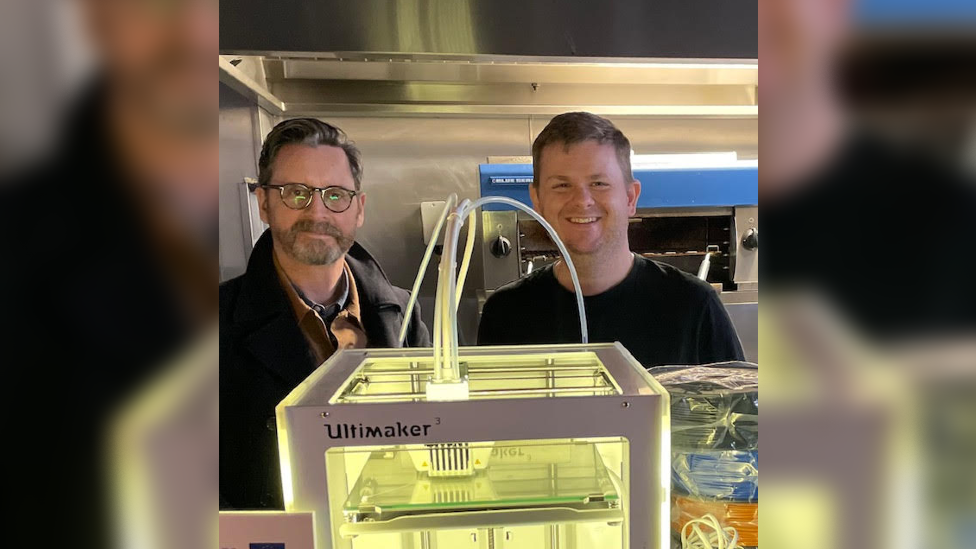
Gary Buller and Edmund Keefe from PrintCity teach repair cafés how to use 3D printers
Back at Stretford Repair Café, Bryony hopes the desire to mend will spread.
"The response so far has been really positive because people are excited to have the option to get something fixed," she explained.
"Our overall aim is that one day, repair cafés will be on every street corner in every neighbourhood."

Why not follow BBC North West on Facebook, external, Twitter, external and Instagram, external? You can also send story ideas to northwest.newsonline@bbc.co.uk
- Published27 November 2021
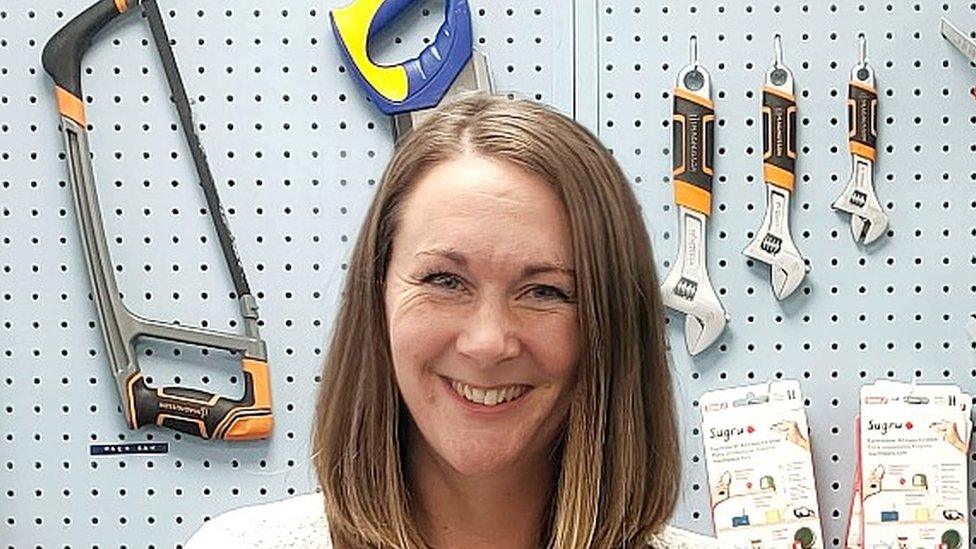
- Published1 July 2021
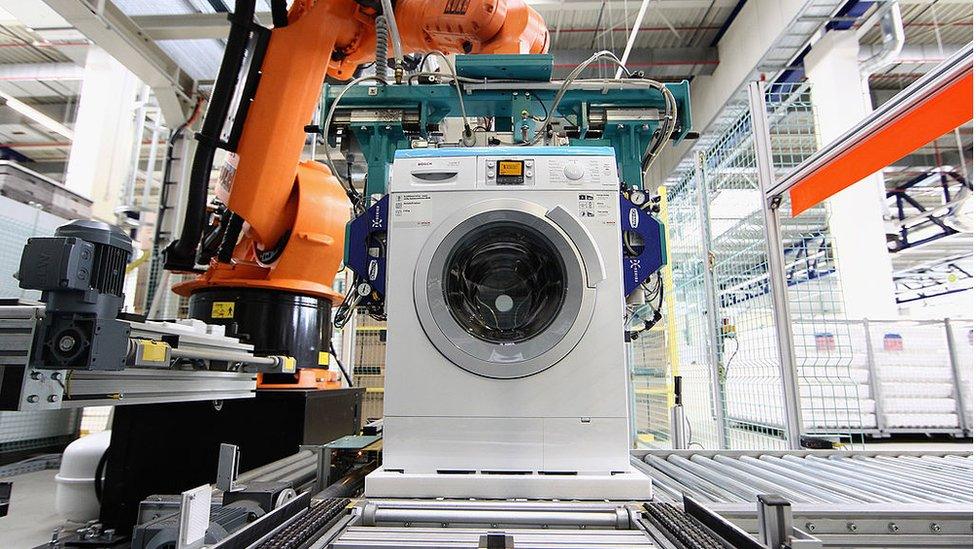
- Published1 May 2021
